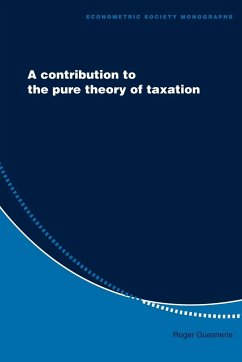
A Contribution to the Pure Theory of Taxation
Versandkostenfrei!
Versandfertig in 1-2 Wochen
52,99 €
inkl. MwSt.

PAYBACK Punkte
26 °P sammeln!
This acclaimed book investigates the way in which tax systems affect economic efficiency and welfare distribution.




